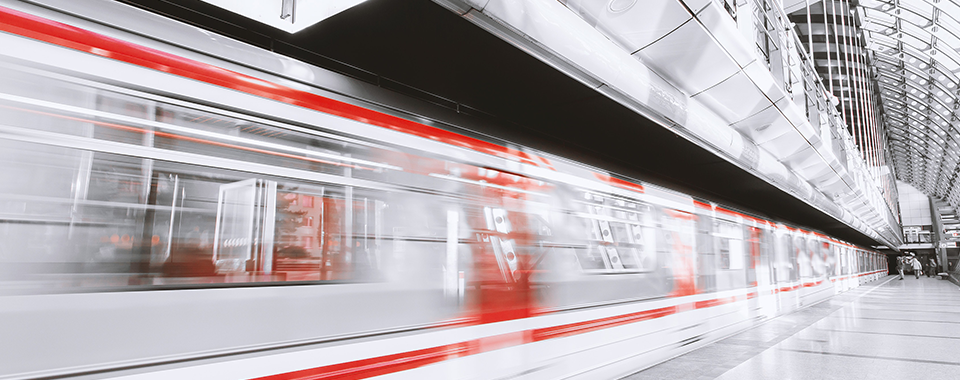
Next destination: Industry 4.0
Over the last two centuries, we have witnessed a continuous, and I would say exponential, innovation process, which roots in the First Industrial Revolution and, passing through impressive technology changes in the most varied areas during the Second and Third Revolution, arrives to this day with the introduction of Artificial Intelligence (IA).
You all have heard about AI at least one time – isn’t it true? Also on U-Hopper blog we have written about it here, here, and even here, explaining in detail what it exactly means – but AI, besides being a popular term nowadays, represents something more? The answer is: YES, of course! Behind these two magic words there is a world to discover!
The truth is that Artificial Intelligence is the undisputed protagonist of the great Industrial Revolution (the Fourth one) we are living in and that is transforming not only our approach to business, but also our society, by introducing automation and digitalization in those contexts where humans have ruled for the past centuries and by leading us to a job world characterized by new professions and roles with new responsibilities and decision-making competences.
Industry 4.0: yesterday, today and tomorrow
The application of technologies based on Artificial Intelligence is transversal to all domains, but there is a particular area in which its potential is truly great: the industrial sector, which I would like to explore further in this article. Indeed, in the industrial world, AI combined with the Internet of Things (IoT) is a really (new) factor of production that has proved to be a decisive enabler for the growth of many manufacturing organizations.
For some time now, in a growing number of industrial entities, machineries have been equipped with a myriad of electronic sensors that allow to observe and memorize a series of data relating to the processes in which they take part, to the results of these processes and even to the surrounding environment.
As it is, this trend is not that recent, and it does not surprise the fact that in the last couple of years the number of sensor installations has increased, also due to the costs becoming more and more accessible. A recent study by the International Data Corporation (IDC), a global company specializing in market research for the technology sector, states that in 2023, over 35 billion IoT devices will be installed worldwide and this number will rise to 42 billion in 2025.
Great innovations, large numbers.. but there is one small flaw: on the one hand, it is true that many industrial companies have installed a multitude of sensors; on the other hand, tough, it is also true that many of these companies are overwhelmed by this huge amount of data, without knowing how to manage and process them correctly, in order to create value out of it.
Luckily, however, according to another study by IDC, the global spending on the purchase of IoT software based on AI, is expected to reach $ 39.3 billion at the end of 2019 and will see the fastest growth over the next five-year period with a CAGR of 14.4%.
So, ladies and gentlemen, there is hope! It seems that both big corporations and SME enterprises are becoming aware of the fact that collecting data is just half of the game; analysing data through AI-based technologies is the other (very important) half that brings along the real value. And surprise, surprise … in U-Hopper we do exactly that! And I would say we’re also quite good at it 🙂
Endless applications
There is not one single application case using Artificial Intelligence technologies in the world of Industry 4.0. In fact, it can involve processes along the entire value chain, from the first to the last step of the production cycle.
For example, there exists solutions that leverage Artificial Intelligence to constantly measure and monitor the performance of different processes, to suggest adjustments on machineries and operations, to prevent breakdowns (predictive maintenance), to plan resources more efficiently and, last but not least, to reduce typical information asymmetries for improving the functioning of the whole chain.
In other words, they are all techniques that allow to take more conscious strategic decisions based on objective facts, and which aimed at the optimization of work and of the costs related to it.
To sum up
According to Assintel Report 2019, one Italian company out of three recognizes the lack of adequate skills and an appropriate digital culture as the main obstacles to digital transformation. This fact suggests that the technological and digital transformation still has a long journey to go.
And this is why one of the missions of U-Hopper is to support companies in this delicate but fundamental growing process, providing them with our skills and the necessary tools to move their first step towards the world of Industry 4.0 and create an ecosystem made of smart industries.
Since November 2019 we have been listed by the Italian Ministry of Economic Development as innovation company for helping SMEs and business networks to carry out technological and digital projects related to Big Data Analytics and Artificial Intelligence. We couldn’t be more happy!
We believe in a smart future, and you?
Did you enjoy this article?
Enter your e-mail address to receive our newsletter!
PS: don’t worry, we hate spam just as much as you do. We’ll send you just a couple of emails a year with a collection of the most interesting articles, it’s a promise!
